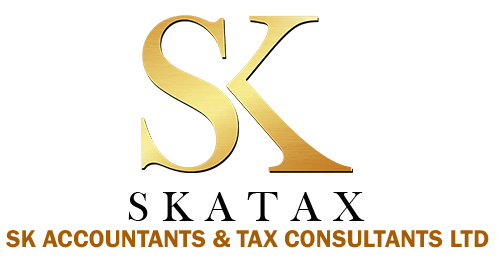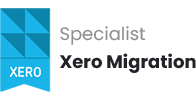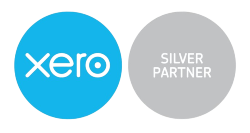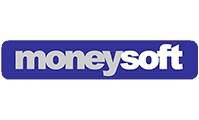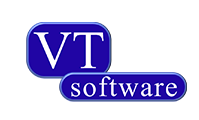Nowadays, the most popular trend is going on is that employer allow their employees to work from home, and in doing so, they pay an amount to cover any additional household costs incurred. What are the tax consequences of such expenses for the employee?
Broadly, if an employer makes a payment to an employee for reasonable additional household expenses and in which the employee incurs in carrying out duties of the employment at home under ‘homeworking arrangements’, there will be no tax liability which will arise.
Homeworking arrangements are basically arrangements between the employee and the employer under which the employee systematically executes some or all of the duties of the employment at home. If any part of the home is utilized exclusively for work, problems could arise on the future sale of the house as part of the capital gains tax; exemption on private residences may be lost.
A dormant company can be defined as which has no significant accounting transactions during the accounting period. A significant accounting transaction is described as one that the company should enter in its accounting records. If such transactions occur, then the company can have a dormant company status. Companies House has defined very specific transactions that the company can be liable to put through their records and still submit dormant accounts:
– Payment for shares by the benefactor to the memorandum of association.
– Fees reimbursed to Companies House
– Recompense of a civil penalty for late filing of accounts
Transactions like bank charges, earning interest on a bank account, Buying and selling or paying for any other will create a company to lose dormant status since this too will be taken as a significant accounting transaction.
There are several expenses that you can assert as an expense. Please see below the list of possible allowable expenses:
- Accountancy emolument
- Advertising
- Agents emolument
- Bad Arrears
- Bank Levy and Interest
- Christmas Party – Only Staff
- Washing charges
- Percentage or Commissions Paid
- Computer consumables or commodity and software
- Courses particularly required for earning the income
- Employer NI & Tax
- Employ of Equipment
- Insurance
- Laundry
- Legal Fees or Emolument
- Light & Heat
- Loose Tools
- Preservation of office machines
- Materials
- Mobile Phone in Venture Name
- MOT – Car Insurance – Road Tax
- Motor Expenses – Repairs & Preservation
- Petrol
- Pensions
- Postage
Allowable expenses are things you need to spend money on the everyday running of the property, like:
- letting agents’ fees
- legal fees for lets of a year or less, or for resuming a lease for less than 50 years
- accountants’ fees
- buildings and contents assurance
- interest on property loans
- Continuation and repairs to the property (but not improvements)
- utility bills, like gas, water and electricity
- rent, ground rent, service charges
- Council Tax
- Cleaning or gardening services which you pay for
- Other direct costs of letting the property, like phone calls, office materials and advertising
Can a Minor be Shareholder?
Yes, a Minor can be a shareholder because there is no minimum age requirement for a shareholder. ??
Can you pay dividends to Minors?
The board of directors decides to pay the dividends to the minor, but under the settlement rules HM Revenue & Customs can come back and say that you are just moving the money around.
What is a Limited Liability Partnership?
LLP partners aren’t personally responsible for debts the business can’t pay – their responsibility is limited to the amount of money they invest in the business. Partners’ duties and share of the profits are set out in an LLP agreement. ‘Designated members’ have extra duties.
Tax for Limited liability partnerships.
Every year, the partnership has to compulsory send a partnership Self-Assessment tax return to HM Revenue and Customs (HMRC).
All the partners must:
- Send a personal Self-Assessment tax return every year without fail.
- Pay Income Tax on their share of the partnership’s behoof.
- Pay National Insurance
- Register your Business for VAT if income is above the VAT threshold.
- File VAT return normally quarterly – only if you are VAT registered.
- Set up a PAYE system to collect income tax and National Insurance contributions, if you have employees.
- File P35 (employer annual return) each year, along with P14, P11 etc. – solely if you register for PAYE.
- Other needs, depends on individual circumstances such as filing P11D etc.
Please see below the step by step guidance, if the outstanding DCA balance or overdrawn loan has been paid back by the director within 9 months & 1 day after the year end date.
To reclaim we have to go through the following steps.
Step 1: Visit the link and fill the L2P form online with below detail:
- UTR.
- The start and end dates of the accounting period when the loan was created.
- The date the loan was created.
- The start and end dates of the accounting period when the loan or part loan was repaid.
- The date the loan or part loan was repaid.
- The value of the loan or part loan repaid.
- The date when relief is unpaid.
- Your bank or building society details if you want us to reimburse you by Bacs
Step 2: After filling the L2P Form, you need to take a print of it and then sign and post it off to HMRC at following address.
Corporation Tax Services
HM Revenue and Customs
BX9 1AX
United Kingdom
Once HMRC approves it, tax charge will be repaid if it had previously been paid or it will be reversed from the HMRC portal.
Sales inside EU: Treat as mentioned above.
Sales outside EU: They will be treated as EXPORTS. Hence will be Zero rated.
VAT on exports to non-EU countries
VAT is basically a tax on goods used in the EU, so if the goods are exported outside the EU, VAT isn’t charged. You can zero-rate the sale and comply with all other laws, provided you get and keep evidence of the export. You must also make sure the goods are exported with evidence, within three months from the time of sale. This can be longer for goods that need processing before export and for pure racehorses.
The time of sale is the earlier of:
• The day you send the stock or goods to your customer
• the day you receive full remittance for them
In case if your customer asks for them to be delivered to a UK address, you must not zero-rate sales. If the consumer arranges to gather them from you, an indirect export, you may be able to zero-rate the sale as long as certain zero-rating conditions are met.
Purchases from Inside EU: will be recorded as procurement
Imports from outside EU: Assert import VAT if paid any.
A confirmation statement (CS01) is a snapshot of universal information about a company’s directors, secretary (where one has been appointed), registered office address, shareholders, share capital and citizen with significant control.
Your Confirmation statement is a legal document or record which provides Companies House with a snapshot about your company, including the following details:
- Name of the company
- Person with significant control (PSC)
- Registered number and registered office address
- Principle business activities
- Details of company secretary
- Type of company eg: private or public
- Details of company directors
- Details of Shareholders
- Details of Share Capital
When are the Company Accounts due? Late filing penalties.
Your company accounts are usually due in 9 months from the year end date (unless you have changed the accounting year). The company’s year-end accounts must be submitted to the companies’ house in 9 months and the company’s tax is due within 9 months and 1 day.
Your company’s accounts are due within 12 months from the year end date. The minimum penalty levied by HMRC for not filing the company tax return is £100. Late filing penalties.
You’ll need to pay penalties if you don’t file your accounts with Companies House by the deadline.
Testimonials
SK Accountants & Tax Consultants is one of the most professional and trusted Accounting Firms I ever dealt with in the UK. They are demonstrating a highly professional standards. Attending all inquiries on an immediate basis. Very Excellent customer service team and most importantly the unconditional care and support from the highly experienced accountants team. Thank you so much SK Accountants. I really recommend as the choice number one in United KingdomAbdul Rahman Abdul Majeed
It has been a very friendly, reliable and a swift experience for me with SKATAX. They have been very professional & efficient throughout the whole process. I would 100% recommend this firm to all businesses. Thank you KS, you and your team is great 🙂Azhar Khan
I have been with This company SK Accountant and Tax Consultant from last 5 years. They are very helpful in managing accounts and in consultancy. I definitely recommend everyone to use there services.Chaudhry Amir
I have used SK accountants and tax consultancy services to deal with one of my tax issues which was very intense and required lots of diligent planning. I was so pleased that the SK team was so proactive in dealing with my case, and their work was so detailed, which helped HMRC understand my tax situation. I would recommend SK to all those looking for proactive tax consultants.Danilov alexey
Positive: Professionalism, Quality, Responsiveness I have received consultancy advice from Mohsin Zafar, who has been very professional and helpful and answered many questions that I had. His responses were swift and concise. I recommend this company for consultancy services, they are very knowledgeableElena Zekonyte
We are Bronze Champion Partners with Xero Advisors
SK Accountants is the ‘one-stop-shop’ accountancy &
tax centre, servicing the needs of local SMEs and taxpayers
